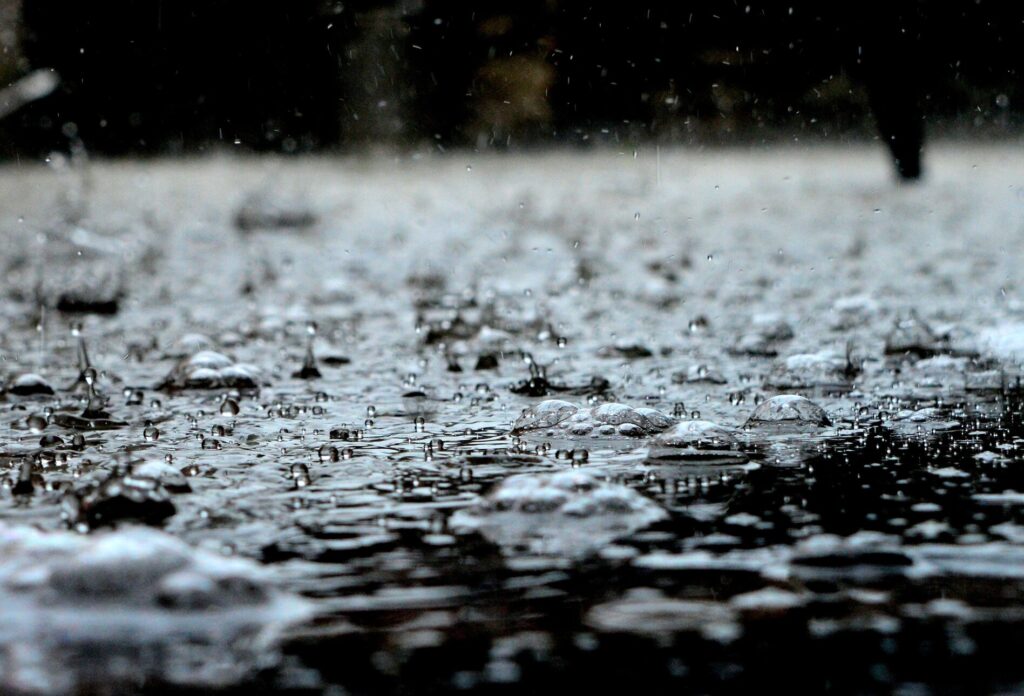
Can You Pour Concrete in the Rain?
When talk of April showers, storm season or wetter-than-usual weather enters the mix, there’s one question that comes to mind for many construction pros and DIYers: Can you pour concrete in the rain? And honestly, the answer might surprise you. You can, in fact, pour concrete when the weather takes a turn, but that doesn’t necessarily mean you should. Read on to learn all about the issues that come into play during soggy weather pours, the factors that contribute to concrete setting — and ways you can poise your projects for success.
The Science Behind How a Wet Weather Concrete Pour Works
Concrete pours are about more than mixing material, ushering it out and giving it time to dry. The setting process is a chemical reaction that binds and hardens the various components, while the curing process (which takes about a month!) is where the material builds up to its full strength. Though invisible to the naked eye, these steps are what allow your poured material to become the strong, sturdy structures your clients have hired you to create. And a little excess moisture won’t hinder that. Of course, if you’re planning to carry out your work on a day when forecasters anticipate a full-on downpour, you might want to reconsider. Too much rainwater incorporated into your concrete blends can result in cosmetic and structural issues.
Potential Problems Associated with Rainy Weather Concrete Pours
Too much of a good thing (in this case, water) can be something of a bad thing. There are a few main issues that arise when excess moisture finds its way to your pour site. Here’s a quick overview:
- Concrete Mixtures Thrown Off-Balance: Having the right ratio of ingredients makes a difference in your concrete blend, and most concrete is about 14% to 21% water. An overabundance of moisture can lessen the effect of the other ingredients (cement and aggregate), making for a finished product that isn’t as durable as it would otherwise be. It can also make for a longer curing process.
- Imperfections That Are Something of an Eyesore: Yes, beauty is only skin deep, but it still makes a difference. Depending on the strength of the particular rain shower, there’s a chance the drops might leave visible marks on your poured material. Minor surface flaws won’t impact overall strength, but could lead to unhappy clients.
- Wet Conditions Can Put Crew Members in Peril: The concrete itself shouldn’t be your only concern. It’s important to think of your crew. The risk of slips and falls increases when ground becomes saturated. Such weather can also make tools and equipment slippery and more difficult to hold on to — and that can result in injury.
Steps to Keep Your Pours on Point
Pouring concrete in the rain isn’t ideal, but there are times it can’t be avoided. When such is the case, there are a few things you can do to keep your material and crew members better protected at every stage.
- Before Your Concrete Pour: Give your job site the once-over, checking for drainage and making sure the area is as dry as possible. Make sure to have an adequate supply of tarps, umbrellas, squeegees (and, for your team members, raincoats) so you’re prepared when the rain makes its entrance.
- During Your Concrete Pour: It’s all about monitoring the situation and taking the steps needed to keep this particular pour moving forward. If the rain coming down is more or less manageable, continue your work, but push water off the surface of your workspace to better protect the finished product. Put your tarps to good use if rains become too heavy, covering your worksite and waiting things out.
- After Your Concrete Pour: Depending on what the forecast looks like for the coming days, you might want to keep those tarps handy. Cover your poured concrete once all is said and done, so it can continue the curing process uninterrupted. Remember, moisture levels play an important role in concrete’s ability to properly set and cure. Your crew should be monitoring those levels to begin with, but should pay added attention during soggy conditions.
So, can you pour concrete in the rain? Yes! But you’ll want to approach things correctly. If you’d like to know more about any of the above, or if you’re interested in learning how General Chipping can keep your operations ready to roll with concrete chipping, silo cleaning and central mixer cleaning services, feel free to contact our team. We’d love to hear from you!
